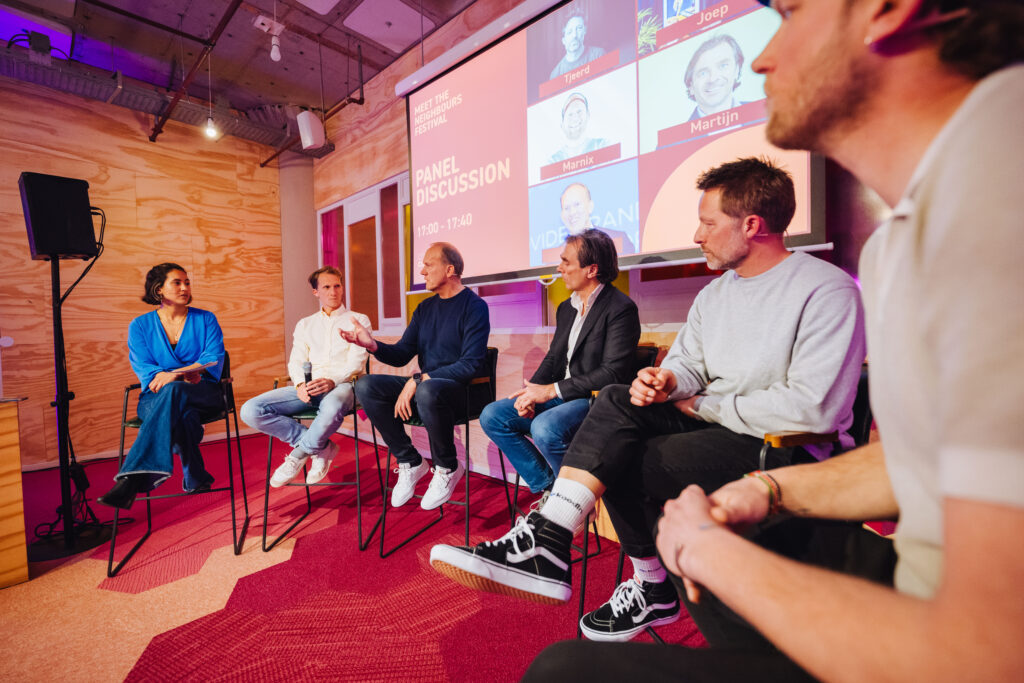Work culture is changing. We are more flexible, more aware, and increasingly looking for work that fits our rhythm and energy. But with all this freedom, sometimes the spontaneous coffee mornings, table tennis tournaments, shared lunches and ... the magic of accidentally running into someone who changes your day also disappear.
So we organized an afternoon at B. to meet each other . Neighbors, members and businesses from our building came together around one theme: Work is better when it doesn't feel like it.
Writer and speaker Frida Boeke joined in and shared her views on work happiness, connection and the future of collaboration. It provided plenty of inspiration, conversations and insights. Not only about work, but especially about how we like to work together.

Why do you still come to the office?
Let's face it: the days of being in the office from nine to five by default seem to be gone forever. More and more people are consciously choosing when and what to come to the office for. So the question is no longer whether you come, but why.
Is it for focus? For the energy of colleagues? Or because the sandwich at the office tastes just that little bit better than at home?
Work is not just work. It is a feeling.
What we notice: people are looking for meaning in their workday. They want it to be right. Not just in terms of planning or targets, but also in terms of energy. Some flourish in silence at a desk, others revive from ping-ponging ideas together in a meeting room.
That's why it's important to know what your employees need. And that starts with an honest and open conversation. Not just top-down, but from colleague to colleague. Have you ever asked your colleague what they think is important in the office? Haven't you? Do it now.
What do you actually expect from a workplace?
Sometimes it's something small: a nice office chair or good coffee. Sometimes it's bigger: space to grow or connection with others. Quite honestly, there is no universal answer. Too bad huh.
What does help is flexibility. Companies that dare to steer by output instead of presence. That give room to balance work and private life.

The four-day work week: dream or future?
There's a lot to be said about working shorter hours. It increases satisfaction, lowers stress but does it fit every type of company? Not always. In consulting, for example, where hours are leading, it is different from companies that are purely result-driven.
Perhaps the solution lies in redefining "productivity. Not in adding up hours, but in measuring value. What does work deliver for your client, your team and yourself?
The new work is people-oriented work
Job satisfaction, autonomy and clear communication are more important than ever. Not just to get people into the office, but to keep them engaged.
It's not about more ping-pong tables. It's about a work culture where people feel heard. Where there is room for difference. And where "output" might as well be a good idea, a relieved customer or a fulfilled workday.
Curious how other entrepreneurs deal with this?
At B., we believe that work culture doesn't come about on your own. It arises in conversations, in meetings, in the sharing of ideas and doubts.
Wondering how others are reshaping work? From four-day work weeks to new ways of working together. Stop by B. Amsterdam to speak to our members. Not because you have to, but because it works.
